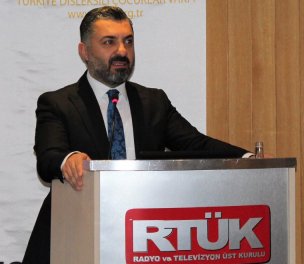Click to read the article in Turkish
On the grounds that they do not have a license for online broadcasting in Turkey, the Radio and Television Supreme Council (RTÜK) has ordered three international news outlets to apply for a license.
Accordingly, the RTÜK has sent notifications to the Voice of America (VoA), Deutsche Welle (DW) Türkçe and Euronews and given these media outlets 72 hours to submit an application for a license.
In making similar requests from online platforms such as Spotify, FoxPlay or MUBI before, the media authority made statements about the issue. However, this time, it is İlhan Taşçı and Okan Konuralp, two members of the RTÜK, who have shared the news with the public.
In his statement on social media, İlhan Taşçı has said that "the RTÜK has, for the first time, exercised its authority of inspection for international news websites." Noting that the related decision has been taken by a majority of votes, Taşçı has indicated that amerikaninsesi.com, dw.com/tr and tr.euronews.com have been given 72 hours to make an application.
He has underlined that if the media outlets do not apply for a license within this period, access blocks will be imposed on the websites.
"After national press, the turn has now come to inspecting and silencing international news websites," Taşçı has said, criticizing the decision:
There may remain no news websites that will not be inspected by the RTÜK from the point of view that 'there is a video on the website, a license shall be received.' The main target is freedom of expression and multiple voices. What is wanted here is to ensure that the press stays silent and does not criticize.
Recalling that the law authorizing the RTÜK to inspect Internet broadcasts entered into force in 2019, İlhan Taşçı has stated, "It is highly interesting that it has occured to the RTÜK to inspect foreign news websites three years later. More is apparently coming!"
Okan Konuralp, another member of the RTÜK, has reminded the public of a report released by the Foundation for Political, Economic and Social Research (SETA), which was severely criticized at the time for profiling the journalists working for international media outlets.
According to Konuralp, this recent decision "is an implementation of the SETA report." Konuralp has said, "But this move aiming to put pressure on the international media is also condemned to failure."
RTÜK authorized to inspect online broadcastsAccording to the "Regulation on Radio, Television and Voluntary Online Broadcasts" published on the Official Gazette on August 1, 2019, Internet platforms such as Netflix have been obliged to get a license from the RTÜK. These websites also have to establish a company and pay taxes in Turkey so that they can continue operating in the country. The objective of the new legal regulation was explained as follows in the Official Gazette: "The objective of this regulation is to establish procedures and principles as to the online broadcast and transmission of radio, television and voluntary broadcasting services; the broadcasting licences to be granted to media service providers and the authority of broadcast transmission to be given to platform operators; and the inspection of the related broadcasts." It has also been indicated in the Gazette that the regulation in question will apply to "the private media service providing institutions that engage in online radio, television and voluntary broadcasts and the operators of these platforms that provide these broadcasting services." |
(HA/SD)




.jpg)


-132.jpg)





aaa.jpg)
